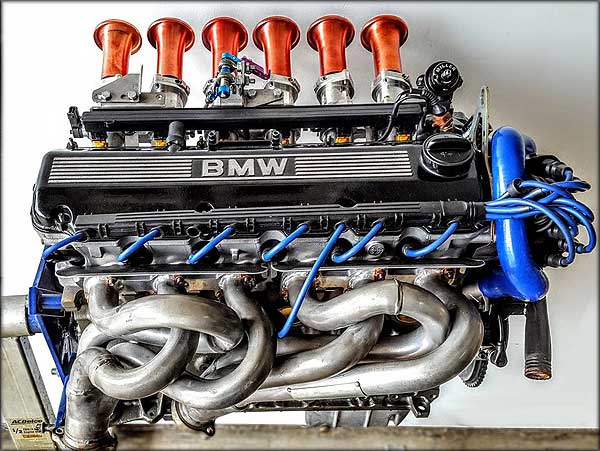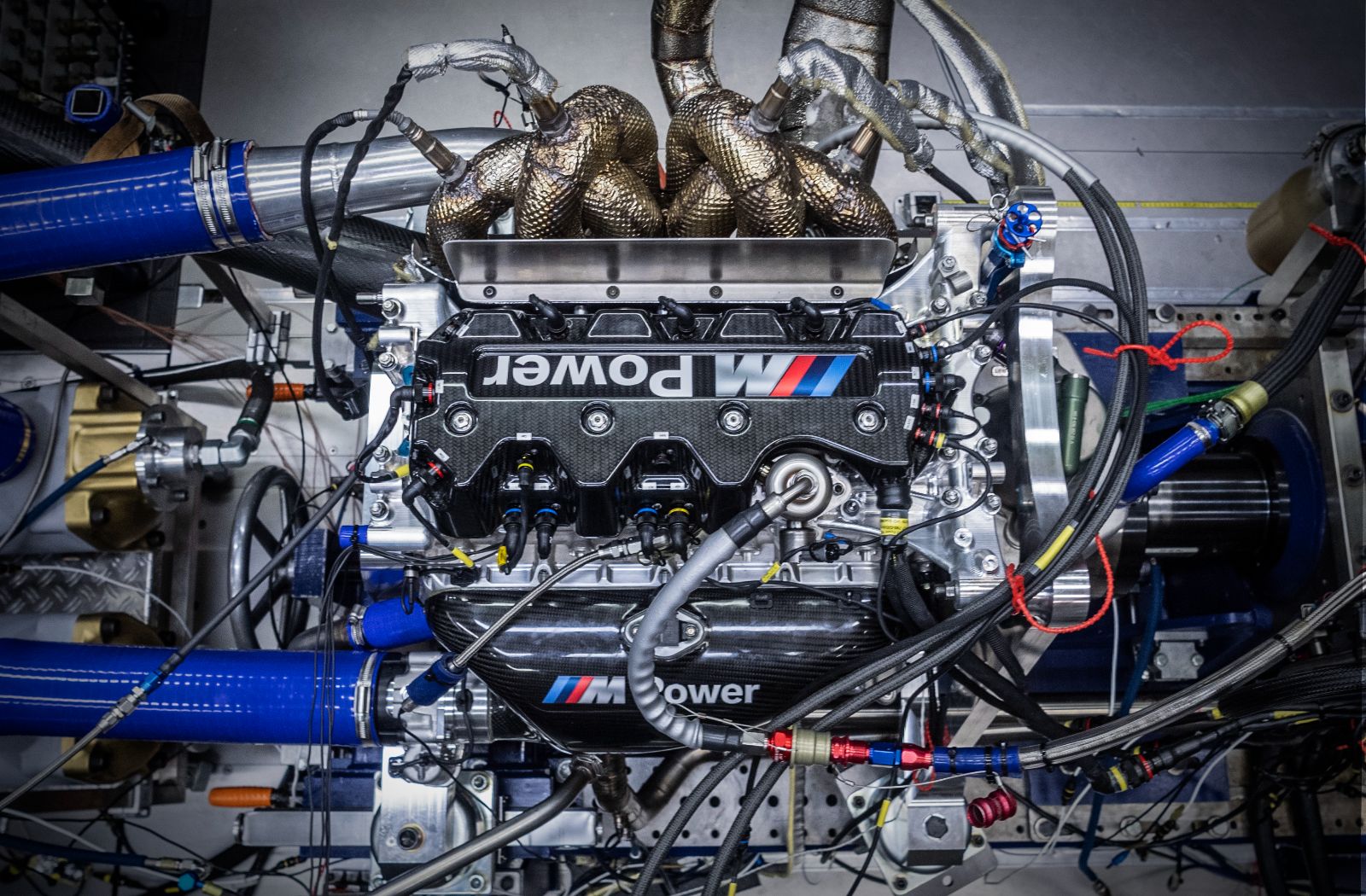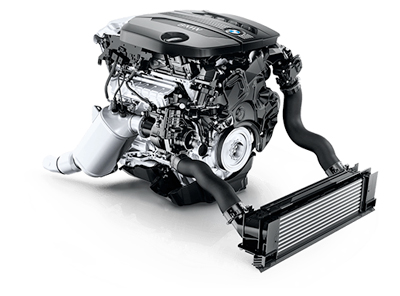The Role of BMW Engine Design in Getting Exceptional Fuel Performance
Wiki Article
Unveiling the Intricacies of Next-Generation Power Units: a Deep Dive Into Advanced Engine Styles and Technologies
As we stand on the precipice of a new period in transportation, the details of next-generation engine designs bid us to explore the sophisticated innovations and technologies that guarantee to redefine the driving experience. Digging deeper into the worlds of emission control, smart engine monitoring systems, and the perspective of power system growth, we find ourselves on the cusp of a makeover that promises to reshape the landscape of movement as we recognize it.Development of Engine Products

The change in the direction of advanced engine materials has actually also enabled engineers to create engines with greater power results while preserving gas performance criteria. The use of lightweight materials decreases the overall weight of the engine, leading to enhanced gas economic climate and lower discharges. Furthermore, innovations in products technology have allowed for far better thermal monitoring within engines, causing raised reliability and durability.
Turbocharging and Supercharging Technologies
How do Turbocharging and Supercharging Technologies revolutionize engine efficiency and performance in contemporary cars? Turbo charging and turbocharging are innovations that significantly enhance engine efficiency by enhancing the quantity of air intake right into the burning chamber. Turbocharging attains this by making use of a turbine driven by exhaust gases to pressurize the consumption air, while supercharging makes use of a belt- or chain-driven compressor to accomplish the exact same result.
These innovations allow smaller sized, much more fuel-efficient engines to create power comparable to larger ones, referred to as downsizing. Forcibly even more air right into the cylinders, turbocharging and turbo charging boost combustion effectiveness, resulting in boosted horsepower and torque outcome without a significant rise in engine size. This causes better acceleration, hauling capability, and overall driving performance.
In addition, turbo charging and turbocharging contribute to enhanced gas efficiency by enabling the usage of smaller engines that eat much less fuel under typical driving problems - bmw engine. This mix of enhanced performance and performance has actually made turbocharging and supercharging important parts of many contemporary engine layouts
Emission Control and Environmental Impact
With boosting international concerns relating to air top quality and ecological sustainability, the implementation of emission control innovations in lorries plays an essential role in minimizing damaging toxins launched into the ambience. Modern lorries are furnished with sophisticated exhaust control systems that assist minimize the environmental impact of vehicle operations. Catalytic converters, for circumstances, are created to convert hazardous gases such as carbon monoxide gas, nitrogen oxides, and hydrocarbons into less dangerous materials like co2 and water vapor.Moreover, developments in engine innovation, such as the combination of exhaust gas recirculation systems and selective catalytic reduction, have actually dramatically added to reducing discharges. These technologies operate in tandem to maximize burning efficiency and reduce the release of unsafe toxins into the air. Additionally, the advancement of hybrid and electric lorries stands for a vital step in the direction of minimizing the general environmental impact of the transport sector.
Intelligent Engine Monitoring Equipment

In addition, these systems allow lorries to meet rigid emissions criteria without compromising performance, supplying a more eco-friendly driving experience. The assimilation of synthetic knowledge and maker learning abilities in engine management systems remains to press the boundaries of what is feasible, resulting in more improvements in effectiveness, integrity, and overall automobile visit this website performance. bmw engine. As auto innovation breakthroughs, intelligent engine administration systems will certainly play an important role fit the future of transport towards a much more lasting and reliable instructions
Future Trends in Power Unit Development
As intelligent engine monitoring systems lead the way for boosted control and optimization in modern-day vehicles, future trends in power system advancement are positioned to redefine the landscape of automotive propulsion innovations. Among the vital fads driving development in power system advancement is the change in the direction of electrification. With a boosting concentrate on sustainability and lowering carbon emissions, crossbreed and electrical powertrains are becoming more common in the vehicle market. These alternate source of power provide enhanced effectiveness and performance while lining up with strict environmental guidelines.An additional significant trend is the integration of sophisticated materials and manufacturing techniques. Light-weight products such as carbon fiber and aluminum are being utilized to decrease total automobile weight, improving fuel performance and efficiency. Additionally, innovations in 3D printing and additive production are making click here for info it possible for the production of intricate engine elements with higher accuracy and toughness.
Additionally, artificial intelligence and artificial intelligence are playing a vital function in maximizing power system performance. These modern technologies enable real-time monitoring and flexible control, leading to much more efficient and trusted power delivery. On the whole, future fads in power system development are geared in the direction of efficiency, performance, and sustainability, driving the vehicle sector towards a new period of propulsion technologies.

Final Thought
In conclusion, the improvements in engine products, turbocharging, exhaust control, and intelligent administration systems have actually paved the way for next-generation power systems. The complex layouts and innovations in modern engines display the recurring advancement of vehicle innovation.Exploring the modern innovations in engine materials has been pivotal in enhancing the performance and effectiveness of modern-day engines. Over the years, the advancement of engine materials has played a critical duty in pressing the borders of what engines can attain.The change in the direction of progressed engine products has actually likewise allowed engineers to design engines with higher power outcomes while maintaining fuel efficiency standards.The execution of smart engine monitoring systems in modern-day automobiles has transformed the way engines are controlled and maximized for efficiency and effectiveness. By gathering data in real-time and analyzing it with innovative formulas, intelligent engine management systems can adapt to click driving styles, ecological aspects, and engine health and wellness to maximize power result while decreasing gas consumption and emissions.
Report this wiki page